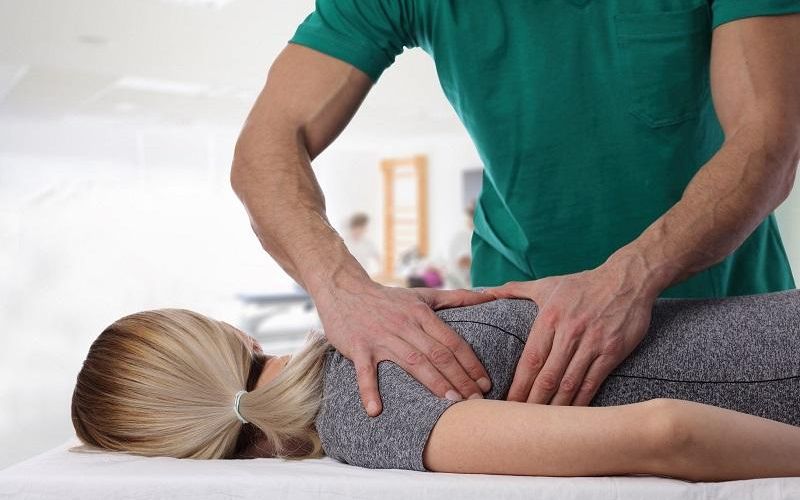When to turn to Physiotherapy instead of Massage on your wellness holiday
In the UK we are often referred to physiotherapy when we have a specific muscular problem or chronic pain in an isolated place. But what about general muscle tension. I have personally suffered with a general tightness and tension in my body and I know I am not alone. The type of tightness and stiffness that many massage therapists ask me if I do serious sports (which I do not). This type of tension not only causes discomfort but it also restricts mobility in various parts of the body. So what causes this tension and what can we do about it?
A plethora of modern lifestyle habits such as sedentary lifestyles, (we were not designed for the prolonged sitting of modern life), poor posture, stress, and minor injuries that have morphed into tension. Also believe it or not, hormonal imbalances can contribute to the increased tension, with lower progesterone being a repeat offender that many women in particular are not aware of.
Many people normalise the tension they are feeling in their bodies and live with it daily. If you are not sure if you have chronic tension then ask yourself if your muscles contract without you trying to tighten them or if you are stiff more often that not. You may have to apply some real mindful thought to this. I suggest concentrating on various areas of your body, specifically the neck, shoulders, back, arms and legs and asking yourself if they are more often tight or constricted than not.
I know from many years of running a wellbeing travel company that the majority of our clients are looking for some type of relief when they travel. Relief from the stress and tiredness, worry and anxiety that is so endemic today. Invariably the conversation usually goes like this “What are you looking to achieve from wellness holiday?” to an answer of something like “To switch off, relax in a beautiful environment and have lots of treatments”. You sometimes hear about tight necks and bodies and feeling out of sorts. Massages are requested as a way of inducing relaxation and relieving tension, and even our shorter Wellbeing Booster programmes all include massage as we know of the instant benefits. But what happens when the next day the tension reappears, or once you return from your wellness or spa break that feeling of tightness takes siege of your body again?
I speak from personal experience. If there is an underlying problem, no amount of massages, no matter how expert, will fix ongoing tension in the body without a more holistic view. That is where physiotherapy Techniques for Muscle Tension Relief can be a viable approach. Here are some of the methods that are used in the Physiotherapy departments at some of our health spas and wellness retreats.
1. Manual Therapy: Physiotherapists employ hands-on specialist techniques such as Myofascial Release Therapy which focuses on the fascia, a connective tissue that surrounds and supports muscles, bones, and organs throughout the body. The physio or practitioner applies gentle sustained pressure and stretching to the myofascial connective tissue. This is an extremely effective treatment for those who have tension, restrictions and adhesions within the fascia which can result from trauma, inflammation and poor posture.
2. Exercise and Strengthening: Physiotherapy involves the prescription of specific exercises tailored to your needs. These exercises aim to strengthen weakened muscles, improve flexibility, and correct posture imbalances that contribute to muscle tension. In other words, get to the root cause. At many of our wellness retreats, they will advise you on a personalised exercise programme for you to continue with when you go home. Even a few targeted set of exercises practiced daily can make a massive difference to your tension and stiffness.
3. Stretching and Range of Motion Exercises: Stretching exercises prescribed by physiotherapists help lengthen tight muscles, reduce stiffness, and enhance range of motion. These exercises can be very effective where the therapist assists in stretching the muscles.
4. Postural Education: Poor posture is a common culprit of muscle tension. The Physiotherapists at many of the medical and health spas educate patients on proper ergonomics, body mechanics, and postural alignment to prevent muscle tension caused by prolonged sitting, incorrect lifting techniques, or repetitive movements.
5. Relaxation Techniques: Physiotherapy incorporates relaxation techniques such as deep breathing exercises, mindfulness, and progressive muscle relaxation to reduce stress and promote overall relaxation. By calming the mind and body, these techniques help alleviate muscle tension caused by stress and anxiety.
6. Electrotherapy: In some cases, physiotherapists may employ electrotherapy modalities like ultrasound, TENS (transcutaneous electrical nerve stimulation), or heat therapy to relieve muscle tension. These modalities stimulate blood flow, reduce pain, and promote tissue healing.
Beyond immediate relief, physiotherapy plays a vital role in long-term management and prevention of muscle tension. By addressing the underlying causes, physiotherapists help you make sustainable lifestyle changes and adopt healthier habits. Our wellness resorts that include physiotherapy programmes will give you a long lasting action plan to take home so you can find long term relief and treatment of a condition that we often underplay.
View our top programmes for physio support here or contact us for advice on which one of our health spas and resorts are best for you.







